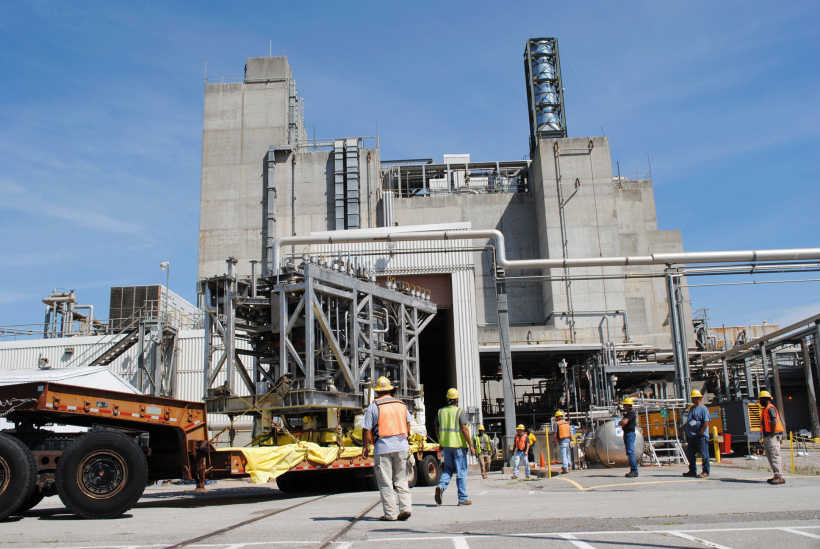Commonly employed wastewater treatment techniques encompass dewatering, sedimentation, composting, incineration, root-zone treatment, and solidification.
Solidification, regarded as one of the most cost-effective methods of waste disposal, offers simplicity in execution.
A notable example is the Defense Waste Processing Facility in South Carolina, where 36 million gallons of liquid nuclear waste were transformed into solid waste.

Solidification involves adding a binding agent to convert liquid waste into a solid form, facilitating easy disposal or landfilling.
Advantages of solidification include:
- Enhanced treatment efficiency through the conversion of liquid waste into a solid state.
- Reduced transportation costs associated with transporting liquid waste.
- Direct landfilling of solidified waste liquid without the need for additional wastewater treatment.
- Increased stability of waste liquid after solidification, minimizing the risk of diffusion, particularly for polluting or toxic waste.
Binding agents can be categorized into traditional and SAP-based types:
Traditional binding agents, such as lime, wood chips, and cement, though widely used, often generate excess waste due to their weak water absorption capacity, leading to increased disposal costs and landfill space requirements.
SAP-based binding agents, on the other hand, leverage Superabsorbent Polymer (SAP), renowned for its exceptional liquid absorption capacity, which can be hundreds or thousands of times its own weight. These agents offer advantages including:
- Rapid liquid absorption, critical for treating toxic chemical liquid waste.
- Strong liquid-locking ability, preventing leakage even under pressure, a feature lacking in traditional binding agents.
Solidification finds applications across various industries, especially in mining, construction, and urban development. Some common applications utilizing SAP-based binding agents include:
- Drilling waste: Managing large quantities of fluid waste containing drilling fluids generated in resource extraction, utility installation, and tunnel excavation projects.
- Tailings waste liquid: Addressing shallow puddles of tailings waste liquid, saving time and effort in cleanup.
- Sludge: Efficient processing of various types of sludge by solidification, enabling quick and cost-effective site remediation.
- Medical waste: Effective treatment of small quantities of medical waste, often mixed with other medical waste, using solidification methods.
- Manure: Suitable for cleaning public toilets and collecting feces in animal farms.
Innovative products tailored for specific applications, such as those designed for treating medical waste liquid, further enhance the efficacy of solidification methods. These products often feature outer packaging that can dissolve in the waste liquid, facilitating quick and safe solidification.

